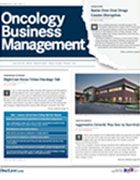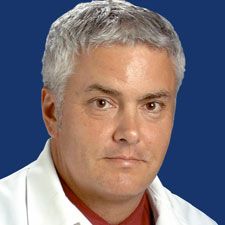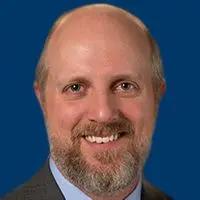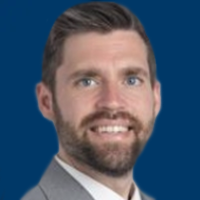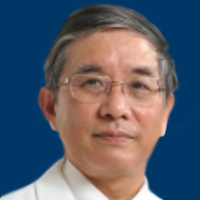New "GPS" Test Is Designed to Predict Drug Efficacy
A test that may be considered beyond next generation in the oncological disease testing market is getting a trial run from Horizon Blue Cross Blue Shield of New Jersey with help from a growing patient database known as COTA.
Patrick Soon-Shiong, MD
A test that may be considered beyond next generation in the oncological disease testing market is getting a trial run from Horizon Blue Cross Blue Shield of New Jersey with help from a growing patient database known as COTA. Officials said the GPS Cancer test has the power to drill down into RNA activity to help doctors understand how well a drug will work against a tumor. They said the kind of information this test produces could prove revolutionary in its potential for accurately guiding medical decisions.
“We can now for the first time interrogate or decide whether the tumor itself has a resistance factor to Taxol before you decide to give Taxol,” said Patrick Soon-Shiong, MD, founder of NantHealth, which developed the GPS Cancer test and is partnering with Horizon and COTA in a trial involving patients with pancreatic, colon, breast, lung, and pediatric cancers.
“For years we’ve treated cancer without being informed by a patient’s specific DNA, but we all have unique genetic profiles which react differently to different treatment approaches,” said Mary Ann Christopher, chief of Clinical Operations and Transformation at Horizon. “The GPS Cancer test allows health professionals to understand an individual person’s genetic profile and the unique biology of the tumor and then design a very specific and personalized course of treatment.”
A number of cancer centers in New Jersey and elsewhere are participating in the study which will accrue patients over the next 12 months. Those centers include Hackensack Meridian; The Cancer Institute of New Jersey; Robert Wood Johnson, Barnabas; the RCCA network of independent cancer centers; and the University of Pennsylvania. The initial trial size is 160 patients.
Soon-Shiong said previous tests of GPS Cancer have shown strong advantages gained by doctors and patients. Horizon’s Christopher said the payer will be looking closely at a number of factors to determine whether GPS Cancer lives up to the claims being made about its potential. She said the promise of the test is that it offers a greater degree of comprehensiveness in understanding the particular genomic and proteomic profiles of patients, allowing for “very individually precise intervention.”
“We’ll be looking at the degree to which information coming out of the study has that influence and informs physicians’ decisions about the treatments and regimens of patients. That will clearly be one of the early outcomes of the study,” Christopher said. “The others will be how does the use of the study influence, ultimately, things like quality of life and comorbidities, because patients may have been treated with one regimen versus another, and how frequently patients wind up in the emergency department.” Total cost of care will also be examined using COTA tracking, she said.
Whereas many genomic assays are available for biomarker guidance, Soon-Shiong said GPS Cancer goes further than those. “What we have here is a PET scan of tumor tissue, which gives us knowledge or new diagnostic information at the molecular level of the biologic activity of the cancer tissue. What’s exciting is that it’s clinically relevant in terms of timing—you have this information before you make the clinical decision what chemotherapy to give or what therapy choices you can choose from.”
Andrew L. Pecora, MD, founder and executive chairman of COTA, said that an advantage of GPS Cancer is that it can tell physicians what not to do, as it is important not to stress or weaken the immune system with therapies that have no efficacy. “The idea is to find the truth—what is the best healthcare and what is the best value healthcare, and what the GPS does is it allows you to further refine what is the right thing to do, what is the wrong thing to do.”
COTA steps in by capturing, cataloging, and reporting that data. Another advantage of COTA is that its broad information base deeply categorizes patient and disease subtypes and amounts to a library of information that can leverage the yield of even small trial sample sizes such as the 160 patients to be enrolled in the GPS Cancer trial. “You don’t need these huge trials to answer questions. You can do it with a limited number of patients,” Pecora said.
Achieving the kind of analysis that the GPS Cancer test can do requires enormous computing power, Soon-Shiong said. A number of remote processing facilities are used to provide the combined capacity needed, a network Soon-Shiong described as covering 300,000 fiber optic miles. “Finding the mutations, doing the RNA analysis of the pathways, and then doing the quantitative proteomics in an academic’s hands would take three months to do, and that’s of no use, no clinical use. A patient needs that decision in two weeks,” he said. “So, we built a computing infrastructure that moves data at terabytes a second, and we’ve completed 21,000 of these analyses in 7000 patients. The amount of computing storage capacity that’s needed is beyond the capacity of any academic institution, beyond the capacity of the National Cancer Institute, and beyond the capacity, clearly, of a community oncologist.”
